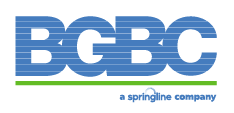It is that time of year again! No, not holiday season, tax planning season!
As we approach year-end, it is important to be looking at ways to minimize our tax liability. Why pay more than your fair share? Below are several key items that should be considered for both individuals and for business owners.
As an individual, here are the top items to consider before year-end:
- To accelerate income / deductions or defer? That is the question.
- Understand your tax bracket for this year and the next. If you feel you will be in a higher income tax bracket this year you will want to defer any income items you have control over. The reverse is true and should be considered as well. If you know a big promotion and raise are coming next year you may want to consider accelerating income to this year.
- If you have the ability to take your bonus or commission in January 2020 you can defer paying the tax on that compensation 16 months.
- If you have a business you may consider sending invoices and collecting money the very first of January instead of end of December
- This is not limited to income. You should consider the timing of your charitable contributions and if you are giving a large amount to charity a donor advised fund could be considered.
- Understand your tax bracket for this year and the next. If you feel you will be in a higher income tax bracket this year you will want to defer any income items you have control over. The reverse is true and should be considered as well. If you know a big promotion and raise are coming next year you may want to consider accelerating income to this year.
- College 529 saving plans
- Christmas is coming. Does your grandchild, niece, or nephew really need any more toys? Consider opening a 529 college savings account instead.
- This is a great way to help offset the future costs of college. This can also be used to pay tuition for private schooling from K-12.
- Many states offer an additional tax incentive to investing in a 529 plan.
- Indiana offers a 20% tax credit up to $5,000 of contributions
- Know the deadline to deposit funds. Indiana requires all contribution be made in the Calendar year ( by 12/31/2019) to be able to claim the credit in 2019.
- Christmas is coming. Does your grandchild, niece, or nephew really need any more toys? Consider opening a 529 college savings account instead.
- Estimated Tax Payments: if you were short on your quarterly estimates and you receive a W-2 consider having additional amounts withheld to help reduce or eliminate underpayment penalties.
As a business, here are the top items to consider before year-end:
- To accelerate income / deductions or defer? That is the question (for business too!).
- Consider paying expenses in December instead of January
- Consider cash collections / invoicing in January
- Accelerated Bonus Depreciation – The tax law allows for a 100% deduction on capital assets under 20 year life to be deducted in the year of purchase (new or used). if you are considering a large purchase (new car for the business, new technology implementation, etc.) it may make since to accelerate that deduction in December to realize that deduction on your 2019 taxes. For instance if you know you are going to need a new car for the business and you are going to buy in 2020 consider accelerating that purchase to December to realize that deduction in 2019.
- International Tax items: please notify your CPA if you have any international activities. There has been a lot of changes in this area and penalties can be extremely high for non-compliance
- Review your method of accounting: The tax law lowered the threshold for businesses required to be on the accrual method of accounting. It may make since to elect (by filing form 3115) to be a cash basis tax payer.
- Section 199A planning should be considered to maximize your deduction on your flow through entities
- Interest Expense and Net Operating Losses can be limited and proper planning should be considered to avoid any large surprises
- Net operating losses from 2018 forward are limited to 80% of taxable income
- Interest expense can be limited to 30% of modified taxable income (add back of depreciation and amortization basically), if you have averaged over 25M of gross receipts the last 3 years or if you are considered a tax shelter. The tax shelter definition is much broader and primarily deals with passive investors and should be looked at to make sure you are not falling into this category.
For a more detailed analysis, you can view the full 2019 Year-End Tax Planning for Individuals and the 2019 Year-End Tax Planning for Businesses.
If you would like to discuss any of these tax planning strategies, please give our office a call.
